One component of sports that is far more prevalent today than it has been in the past is wearing mouthguards. Oral sports protection is now a regular part of the equipment for many different sports to help protect your teeth and provide other benefits. With modern technology, sports mouthguards are comfortable and provide more protection than ever. Keep reading to learn more about the use of mouthguards in sports and why it’s such an important topic.
Benefits Of Mouthguards In Sports

Wearing a mouthguard when playing sports provides a range of important benefits. We all want to keep our natural teeth as long as possible, and wearing a mouthguard is a good preventative tool to allow you to make that happen. Some of the benefits of mouthguards include:
- Protection against broken or chipped teeth
- Protection against complete tooth loss
- Protection of previous dental work
- Reduced chance of concussion
It’s always a good idea to remember that once a tooth is gone, it’s not growing back, so you’ll need to find an alternative tooth replacement solution for the remainder of your life. That’s not to say there isn’t a wide range of viable options available, but there’s nothing like having your own teeth in your mouth for as long as possible.
Types Of Sports Mouthguards
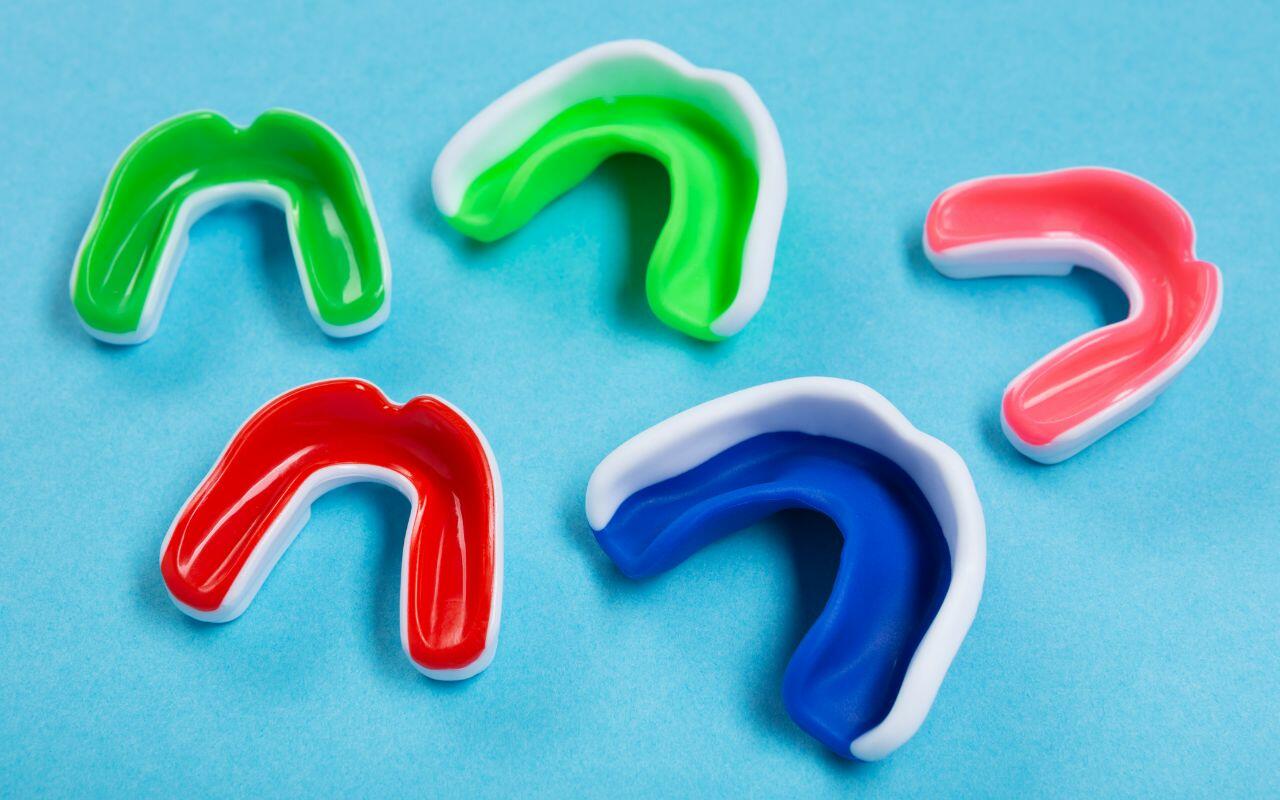
When it comes to mouthguards, there are three basic types:
Pre-made or ready-made mouthguards – These are over-the-counter mouthguards that are pre-formed and ready to wear. They are usually inexpensive and are one-size-fits-all. They may offer some surface protection while playing sports, but they are often uncomfortable, and they may fall out regularly.
Boil-and-bite mouth-formed style – For this type of mouthguard, you boil it in water so it softens, then put it in your mouth and bite down so it forms around your mouth. You can also use your tongue and fingers to help mold it to your teeth. Boil-and-bite mouthguards usually fit better than pre-made ones, but they won’t offer a perfect fit.
Custom-made mouthguard – A custom-fitted mouth guard is designed to fit your mouth perfectly. They are usually more expensive than the other types of mouthguards, but they also offer the best fit, comfort, and protection. Athletes have a much better chance of protecting their teeth and being able to play their sport without any breathing disruption.
Which Sports Use Mouthguards?
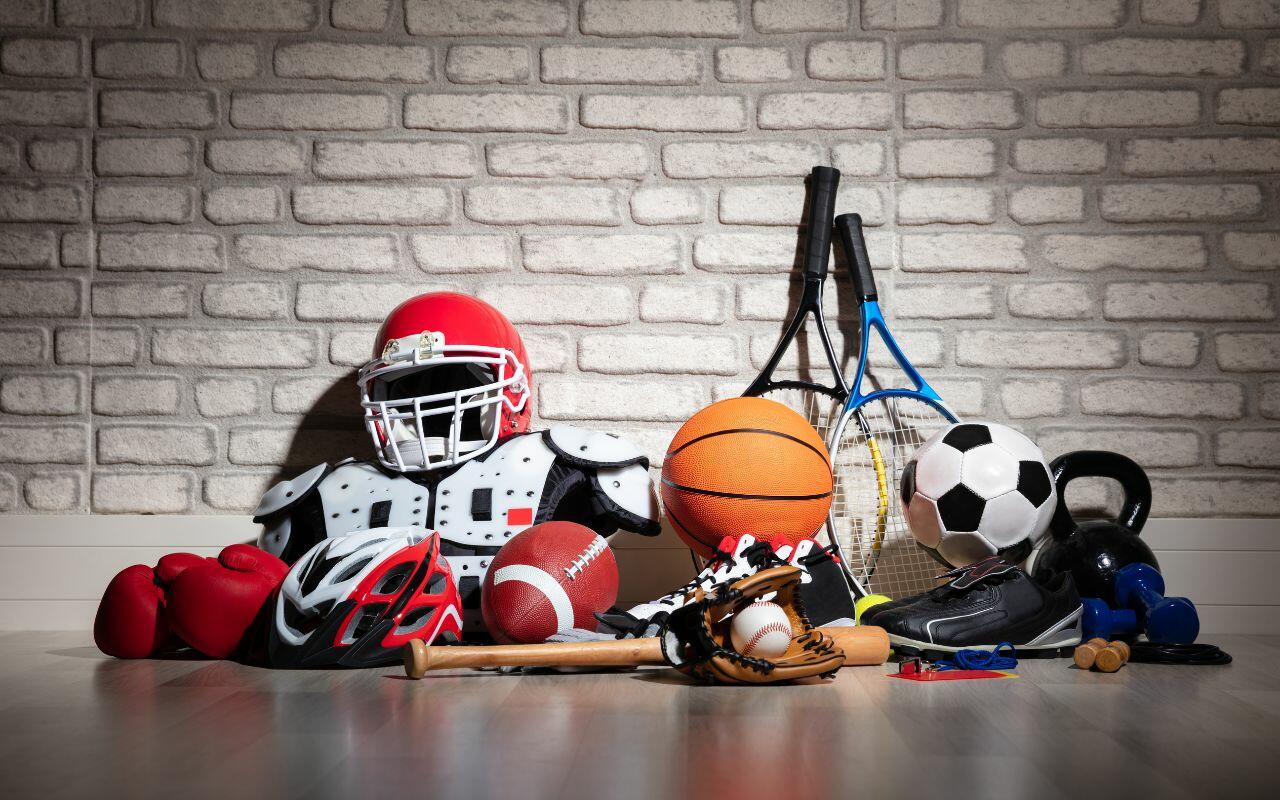
It seems as though more and more athletes are choosing to wear sports mouthguards, even in sports that don’t typically have any contact. As an example, many baseball players wear mouthguards now to protect against being hit in the mouth with the ball. Some of the more common sports that use mouthguards include boxing, hockey, football, lacrosse, martial arts, rugby, and basketball.
Sports that use mouthguards that may not have in the past include gymnastics, racquetball, shotput, skateboarding, skiing, squash, and surfing. Even though these sports aren’t overly physical, there is always the likelihood of suffering an oral injury or facing a dental emergency if there is a mishap.
Common Oral Injuries In Sports
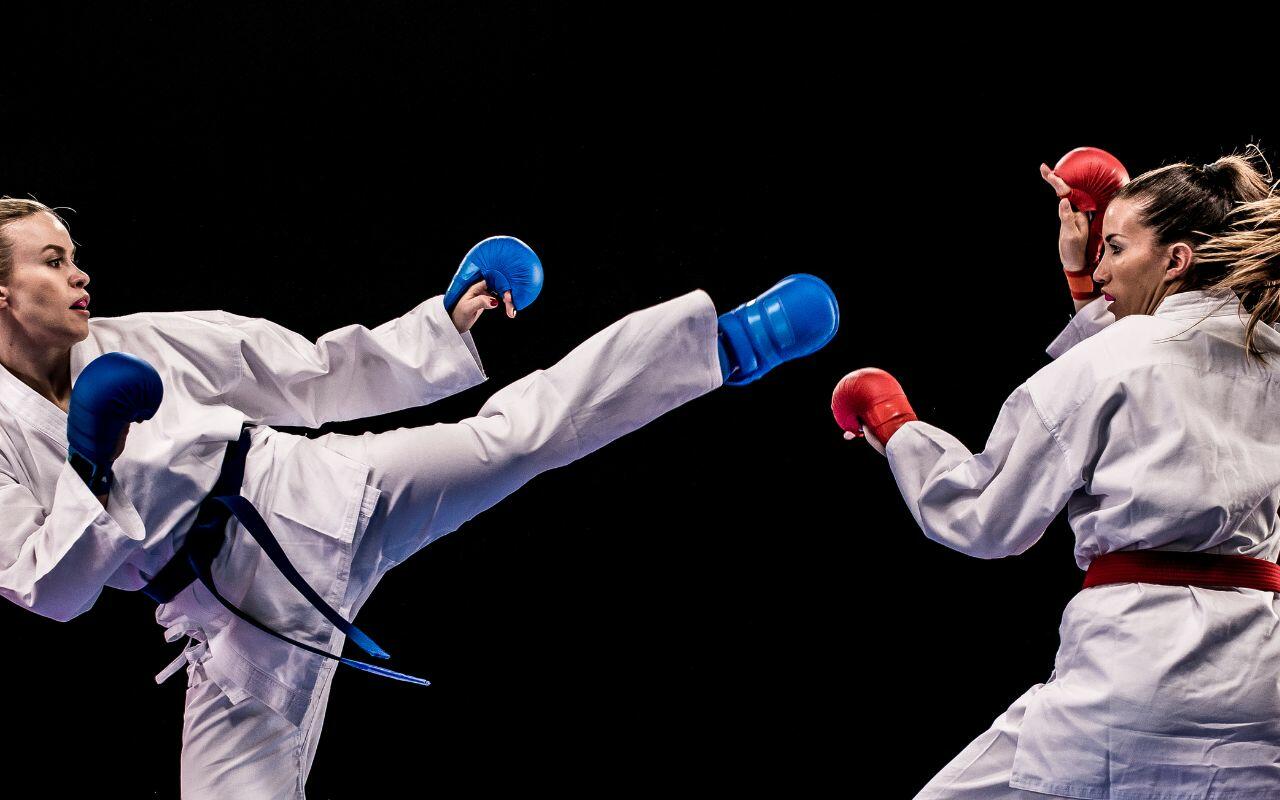
It’s not always easy to obtain dental injury statistics from different types of sports because they are often not reported. In many cases, the athlete will suffer a dental injury and just continue playing and worry about it later. Contact sports will naturally carry the highest risk when it comes to dental injuries, and here are some interesting facts:
- Basketball, football, martial arts, boxing, and hockey typically carry the highest risk
- Soft tissue injuries such as lacerations are the most common oral injuries in sports
- Upper lip, maxilla, and central maxillary incisors are involved in close to 90% of all dental and orofacial trauma
- Most dental trauma suffered playing sports consists of tooth fractures, tooth avulsion, or tooth subluxation
How To Care For Your Sports Guard
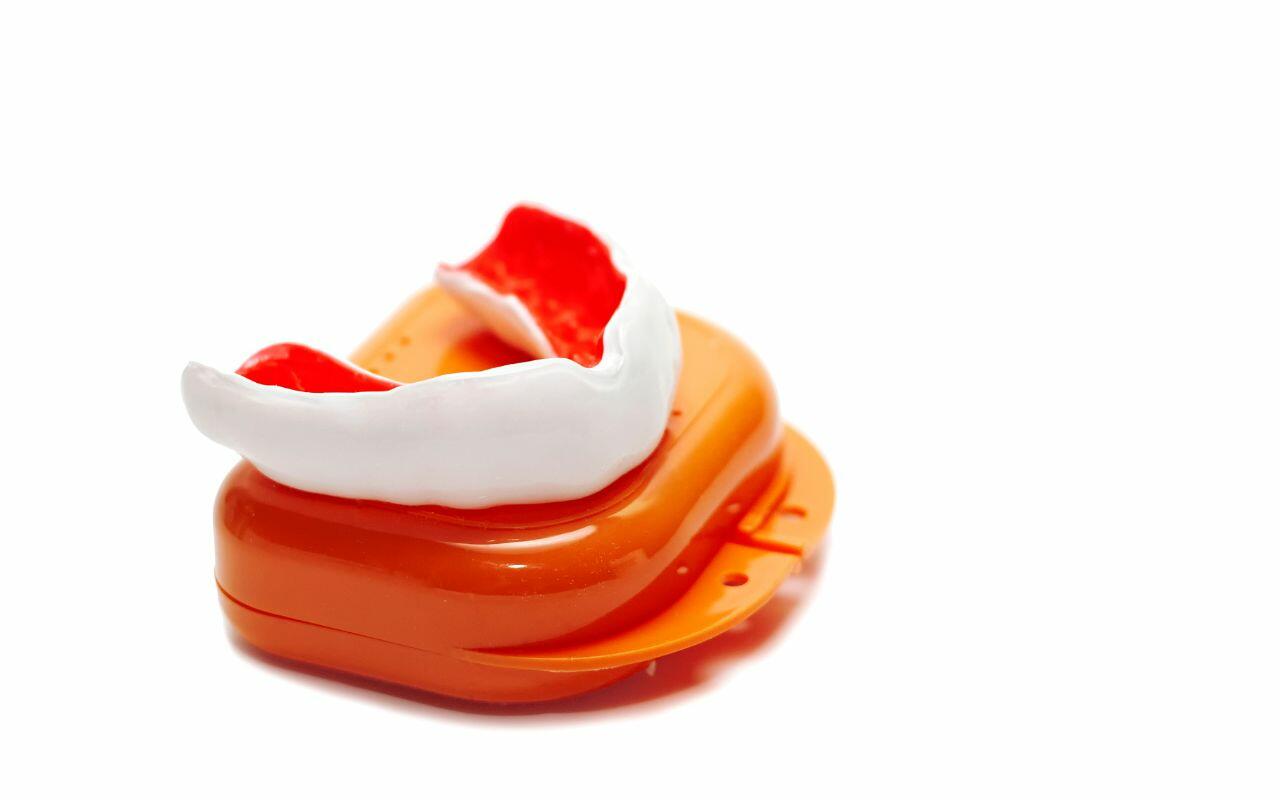
Once you decide on what type of oral sports protection you want to use, it’s always important to take care of it, so it is in good condition and sanitary for the next time you use it. The last thing you want is for your sports mouthguard to be overrun with bacteria or to break down before it needs to. Here are some tips for taking care of and cleaning your mouthguard:
- Rinse it under clean water immediately after using it
- Brush it gently with a toothbrush
- Deep clean your mouthguard weekly
- Always keep it in the case when you’re not using it
- Keep the case clean at all times
When To Replace Your Mouthguard
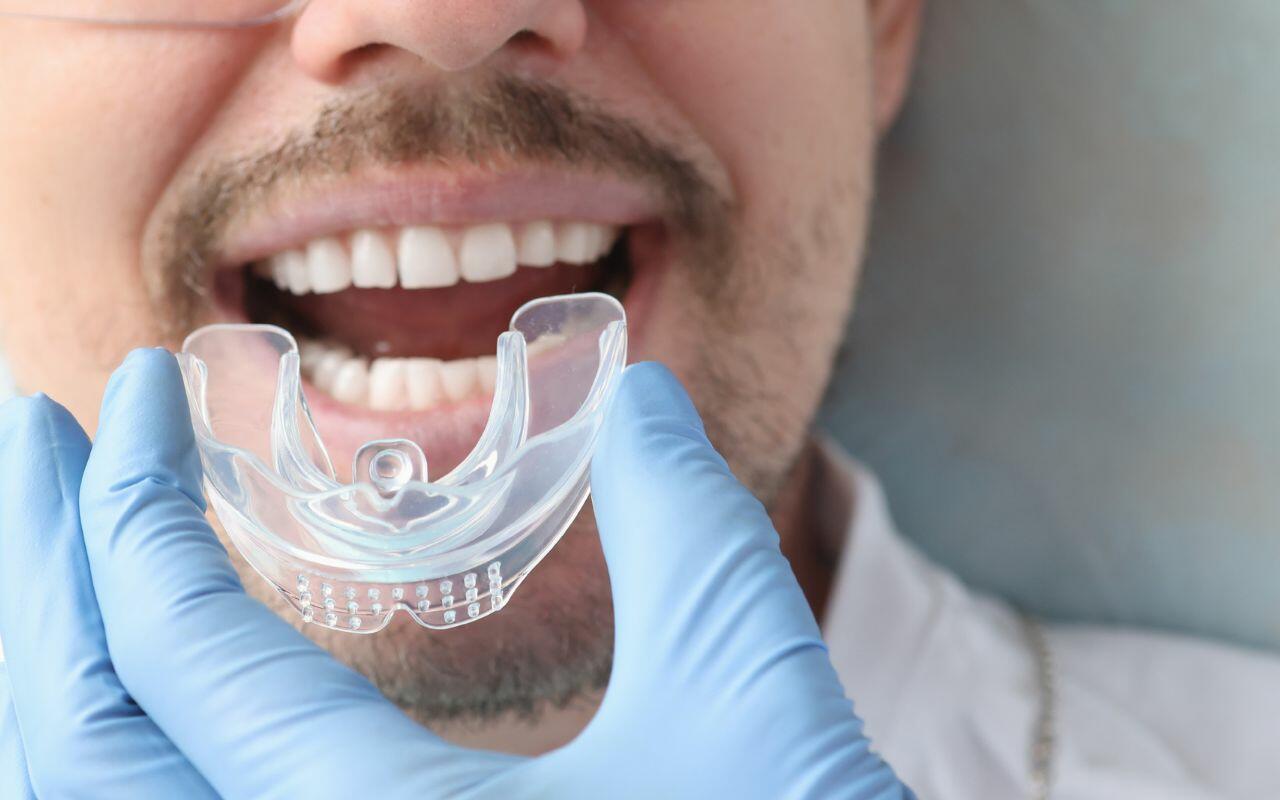
Naturally, you’ll want to replace your mouthguard anytime you notice damage or signs of wear and tear. You will also want to replace it if it’s not fitting properly and you find that it’s challenging to keep it in place while you’re playing. Even though it’s a protective device, a mouthguard can take quite a beating, especially if you’re involved in sports with heavy body contact, or combat sports where you’re actually getting hit in the mouth.
The more your mouthguard is used, the thinner it’s going to get, which will decrease its ability to absorb external impact and protect your teeth and mouth. At the very least, make a point to replace your mouthguard at the beginning of every new season so you have the maximum protection.
At Bradford Family Dentistry, we have a wide range of solutions when it comes to repairing and replacing lost or damaged teeth, but our primary goal is to help keep your natural teeth in place for as long as possible. Wearing a mouthguard while playing sports will provide you with an effective layer of protection that will enable you to enjoy the sports you love and maintain your beautiful smile at the same time.
For more information on the importance of mouthguards in sports, call us at 905-775-5307 or click here to request an appointment:
